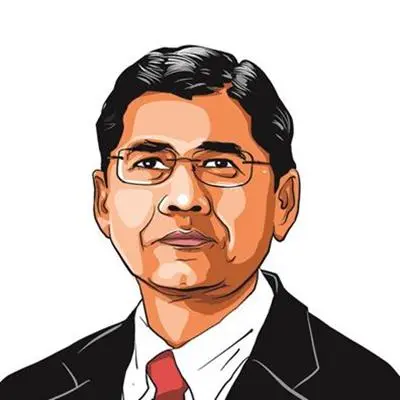Opinion Remember Ambedkar’s warning
An objective introspection of what has happened over the last 75 years should bring home the need to end divisive and caste-based politics
 Approximately 7,650 amendments were tabled but the actual number of amendments that were moved and considered in the Assembly were 2,473 and the final draft of the Constitution of India had 395 Articles and eight Schedules. (Express File Photo)
Approximately 7,650 amendments were tabled but the actual number of amendments that were moved and considered in the Assembly were 2,473 and the final draft of the Constitution of India had 395 Articles and eight Schedules. (Express File Photo) November 26 is celebrated as Constitution Day, or Samvidhan Divas, as this was the day in 1949 that the Constituent Assembly of India adopted our Constitution. But what is more important to ponder upon is the speech that was made by B R Ambedkar a day earlier, when he looked back on the work that had been done and the dangers that he felt would face independent India. He recollected that the Constituent Assembly had first met on December 9, 1946, and had altogether held 11 sessions, with the last four sessions being devoted to considering the draft Constitution. While the first seven sessions took 165 days, the last four took 114 days.
A separate Drafting Committee was formed and its first meeting was held on August 30, 1947, and met for over 141 days. Constitutional advisor B N Rau prepared the first text that had 243 Articles and 13 Schedules. Approximately 7,650 amendments were tabled but the actual number of amendments that were moved and considered in the Assembly were 2,473 and the final draft of the Constitution of India had 395 Articles and eight Schedules.
Ambedkar referred to these statistics to explain the time taken to finalise the Constitution. Apart from Rau, he pointed out that much greater credit had to go to S N Mukherjee, who was the chief draftsman of the Constitution and had the ability to put the most intricate proposals in the simplest and clearest legal form. But for Mukherjee’s efforts, the drafting of the Constitution would have taken many more years.
Interestingly, Ambedkar pointed out that he became chairman of the Drafting Committee by accident as he had come to the Assembly with no greater aspiration than to safeguard the interests of the Scheduled Castes. He did not have the remotest idea that he would be elected to the Drafting Committee, and he was even more surprised when the Drafting Committee elected him to be the chairman, when eminent lawyers such as Alladi Krishnaswami Ayyar were its members.
Ambedkar expressed concerns about some issues that the new republic would face in the future and, sadly, many of his fears have come true. His anxiety was that our enemies would take the form of castes and creeds and also the fact that there would be many political parties with diverse and opposing political creeds. He asked: Will Indians place the country above their creed, or will they place their creed above the country? Ambedkar was certain that if creed was placed above the country, our independence would be in jeopardy and would probably be lost forever.
Ambedkar then quoted John Stuart Mill’s warning that in a democracy, nobody should lay their liberties at the feet of even a great man or trust him with powers which enable him to subvert their institutions. This caution, according to Ambedkar, was far more necessary in the case of India than any other country. For, in India, Bhakti or what may be called the path of devotion or hero-worship, plays a part in its politics unequalled in magnitude by the part it plays in the politics of any other country. Bhakti in religion may be a road to the salvation of the soul. But in politics, Bhakti is a sure road to degradation and to eventual dictatorship. The hero worship cult that Ambedkar feared has also been widely prevalent in several states where chief ministers have been treated like demi-gods. Any potential rival is sidelined to ensure succession of the son, daughter, or close associate, regardless of their competence.
It is significant that Ambedkar expressed the view that castes are anti-national because they bring about separation in social life; they are also anti-national because they generate jealousy and antipathy between castes. Ambedkar’s warnings must make us reconsider whether the present trend of having caste counting exercises or making sub-categories within backward castes and Scheduled Castes to suit political gains are a step in the right direction.
Finally, he mentioned that after Independence, we would not have the excuse of blaming the British for things going wrong. After Independence, we have nobody to blame except ourselves. He emphasised the need to implement the principles of liberty, equality and fraternity which he termed as an inseparable trinity. He particularly emphasised the importance of fraternity and common brotherhood of Indians as this alone would bring unity and solidarity to social life.
It is a remarkable achievement that despite all the trials and tribulations, India has remained a republican democracy. The late Nani Palkhivala emphasised that the only way to preserve our cherished constitutional values is eternal vigilance on the part of the citizens. An objective introspection of what has happened over the last 75 years should bring home the need to end divisive and caste-based politics and adopt a single-minded focus on making India a fully developed economy where the principles of liberty, equality and fraternity prevail in the spirit that was hoped not only by Ambedkar, but by other eminent founding fathers and mothers, as well.
The writer is a senior advocate






